MercoPress. South Atlantic News Agency
Falkland Islands
-
Friday, June 6th 2014 - 02:38 UTC
Science and tourism combine in support of Wandering Albatross
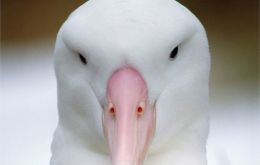
In a superb development for science and tourism in South Georgia, Cheesemans’ Ecology Safaris is offering the opportunity for 7 people to join a scientific trip on the Hans Hansson surveying South Georgia’s wandering albatross.
-
Thursday, June 5th 2014 - 00:04 UTC
Falklands developing strongly and with a high international community profile
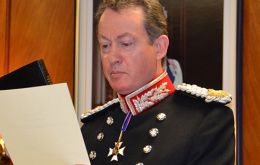
Falkland Islands are enjoying the benefits of a healthy well managed economy, with excellent present and future prospects in its main industries, but also face challenges such as the need for manpower, closely linked to immigration, planning for a balance between environment and oil industry, a modern government and the continued attempts by Argentina to stifle the Islands economy and block economic development.
-
Wednesday, June 4th 2014 - 20:26 UTC
Falklands' welcomes rig-contract which marks beginning of oil drilling season in first quarter of 2015

The Falkland Islands Government welcomed the announcement on Thursday morning that a drilling rig has been contracted by a consortium of licensees for a new six-well program of offshore exploration and appraisal work commencing in early 2015.
-
Saturday, May 31st 2014 - 07:43 UTC
Falklands to mark liberation from Argentine occupation on Saturday 14 June
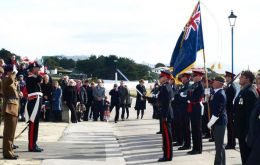
To mark the anniversary of the liberation of the Falkland Islands from Argentine occupation in 1982, a program of activities has been arranged for Saturday 14 June 2014, beginning with a Thanksgiving Service to be held at Christ Church Cathedral commencing at 9.45 am, according to a release from Gilbert House.
-
Wednesday, May 28th 2014 - 08:16 UTC
Falklands and Punta Arenas close medical professional relations
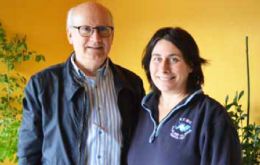
Relationships between medical professionals in Southern Chile and the Falkland Islands have been strengthened following a visit by the Islands’ radiographer to Punta Arenas.
-
Wednesday, May 28th 2014 - 08:06 UTC
Falkland Islander Debby, first woman to be appointed to top tourism job in New Zealand
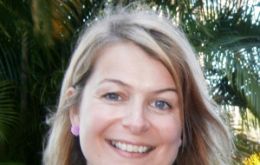
Falkland Islands and former Tourism Development Manager for Sulivan Shipping Ltd, Debs Summers, now living in New Zealand has become the first woman ever to join the Board of Directors of leading destinations Management company ID New Zealand.
-
Wednesday, May 28th 2014 - 07:52 UTC
Falklands has a new Chief of Police, an Islander career officer

The Falkland Islands Government announced the promotion of Len McGill to Superintendent and his appointment as the new Chief of Police. Len, who is a Falkland Islands will begin his new post from 1st June, taking over from Barry Marsden who will be focusing on his role as Director of Emergency Services, where previously the two jobs were combined.
-
Tuesday, May 27th 2014 - 08:23 UTC
Malvinas and Bolivia's ocean outlet, the 'two open wounds' of Latin America
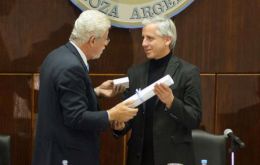
Latin America has two open wounds, the Malvinas Islands and Bolivia's sovereign outlet to the Pacific, said Bolivian vice-president Alvaro Garcia Linera in Mendoza, Argentina where he was awarded an 'Honoris Causa” for his commitment to regional integration and inclusion.
-
Saturday, May 24th 2014 - 00:11 UTC
Pescanova Falklands operation could be targeted by Argentina, says Spanish media
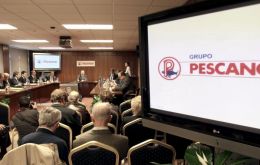
Argentina’s government could at any stage now force Spanish seafood group Pescanova to divest its squid fishing operation based in the Falkland Islands, as it is reportedly breaching fishing legislation, said Spanish media.
-
Friday, May 23rd 2014 - 11:06 UTC
Falklands reaffirms right to self-determination on UN charter and documents going back to 1960

The Falklands Islands reaffirmed its right to self determination supported by the UN charter and different resolutions going back to 1960, and at the same time accused Argentina of doing its utmost to damage the Islands economy.
